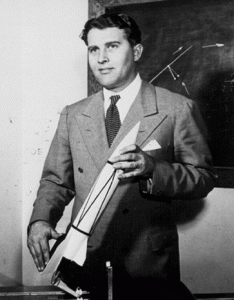Rekindling the Spirit of 1776: Preview Chapter One
 “Vice prevails and impious men bear sway.” Such was the prevailing ethic during the Roman Republic’s demise. Meanwhile citizens were compelled to witness the onset of the “greatness” of the tyrannical era of Caesars. In America too, national greatness has been reduced mainly to status as a military superpower exerting global cultural influence.
“Vice prevails and impious men bear sway.” Such was the prevailing ethic during the Roman Republic’s demise. Meanwhile citizens were compelled to witness the onset of the “greatness” of the tyrannical era of Caesars. In America too, national greatness has been reduced mainly to status as a military superpower exerting global cultural influence.
To restore the reality of our own Republic – a government of laws, not men – citizens must discard the idolatrous notion that power will alone suffice. Alexander “the Great” and Herod “the Great” are examples of unredeemed power; also 18th century “Great” Britain oppressing our forebears in the thirteen colonies.
Recovery of goodness and true greatness is not impossible for powerful individuals, provided they repent and make amends. Analogously for nations. Witness the British (1939-45), their collective nobility recovered during wartime under the pressure of adversity imposed by the Nazis, and under the high quality of Sir Winston Churchill’s leadership.
Midway through the American Civil War, President Abraham Lincoln put the principle of national recovery this way:
it is the duty of nations as well as of men, to own their dependence upon the overruling power of God, to confess their sins and transgressions, in humble sorrow, yet with assured hope that genuine repentance will lead to mercy and pardon;…[1]

“America is great because America is good – and if America ever ceases to be good – America will cease to be great.” Dwight D. Eisenhower
“If America ever ceases to be good,” said President Eisenhower, “America will cease to be great.”[2] Not to despair; for historical experience does offer hope. We the People might still recover genuine national greatness – maybe for the Union of 50 States; otherwise for a secessionist portion thereof.
In either case, under God, the transformation is conceivable, and perhaps achievable without mass violence. The fall of the Soviet Union in 1991 was an almost bloodless process.
Possibly the most poignant symbol of Russia’s repentance from its impious ways is the Church On The Blood, erected during Vladimir Putin’s first term as President. It was built in Yekaterinburg with private donations and government matching funds at the exact location where in 1918 Tsar Nicholas II and his family were murdered by order of the Communist government. The Russian Orthodox designers positioned the high altar precisely above the spot where the Tsar’s body has been found riddled with machine gun bullets.
One prays for the restoration of a virtuous regime on this continent, governing under the written US Constitution. Hopefully it would persist for several generations, and would not (like the UK during Churchill’s post-war career) fade away as soon as the dark cloud looming over the land has lifted.
______
Let us begin by calling to mind the memories of goodness, as it prevailed here before the assassination of JFK. The past may be prologue, and the recollections of a senior citizen might elucidate the path to national turnabout.
During my formative years, government at all levels was for the most part respectable and restrained in reach. Our economy permitted the norm, the nuclear family, to get by with a single breadwinner. American culture was civilized in manners and morals, and the country imprisoned one-seventh as many Americans per/capita as now.
My parents could send me alone to the grocery store without worrying that predators might accost me en route, or that I would go through a gauntlet of hypersexual and maniacal literature at the checkout stand. Rather than an arena of political controversy, the family was a “haven in a heartless world.” Only one in twenty children (5%) were born out of wedlock in 1960; contrast that with eight in twenty (40%) today.
Unlike the great majority of my fellow Americans, who are too young to remember, I myself have first hand knowledge of what we used to call “America the Beautiful.” I enjoy a certitude and confidence derived from familiarity: it is surely possible to maintain a great and modern nation that is neither imperialistic overseas nor repressive and corrupt here at home. For I knew such a country, and I lived in it for 20 years – my imperfect yet fine homeland until c. 1963. Till then I was “able to love my country and still love justice,” as Bobby Kennedy would oft quote Albert Camus.
While I was still a small child, in 1945, Germany’s foremost rocket scientist, 34 year old Wernher von Braun, led his team of scientists and engineers along a war ravaged route from Peenemunde to Bavaria, where they surrendered to U.S. forces. The team had voted for capitulation to the Americans – rather than to the Russians, the British or the French – because, as von Braun announced:
We knew that we had created a new means of warfare, and the question as to what nation, to what victorious nation we were willing to entrust this brainchild of ours was a moral decision more than anything else. We wanted to see the world spared another conflict such as Germany had just been through, and we felt that only by surrendering such a weapon to people who are guided by the Bible could such an assurance to the world be best secured.
The rocket team’s moral premise remained valid for another two decades or so. The beginning of the end came on June 17, 1963, as SCOTUS (the Supreme Court of the United States) backed atheist leader, Madelyn Murray O’Hair, in her determination that the Bible should no longer serve as the nation’s guide – emphatically not for public school pupils. This blow from the Federal bench was a coup d’état against the United States as a Judeo-Christian republic.
There is no easy way to overturn a coup carried out by SCOTUS. Here are four options:
Article III, section 2 of the Constitution authorizes Congress to deny jurisdiction to Federal Courts. Alas, political corruption and government by gridlock on Capitol Hill renders this approach impractical, or rather politically impossible in today’s beltway environment.
More practically, Article V provides for a Convention of the States “for proposing Amendments” back to the States, of which 3/4 are required to ratify. Here the great advantage would be to circumvent Washington, D.C., i.e. to do an end run around the District of Corruption.
As per the Second and/or Ninth Amendments, an insurrection culminating in the convening of an Article V Convention to restore the written Constitution, and in the process to revitalize the Union. The difficulties here are considerable, including the post-revolutionary problem of incorporating defeated States into a harmonious Union.
Secession to form a new union, a power implied by the Ninth Amendment. Here our purpose would be a downsized but upgraded republic with – as in the preceding option – the scepter restored to the written Constitution, and with our Judeo-Christian heritage as the presiding paradigm. Among the advantages of secession would be liberation both politically and culturally from aggressively secular environs like (citing my first-hand experience) metropolitan Seattle.
The last three options all would involve an Article V Convention at some stage of the reforming process.
Digressing into contra-factual history, such a Convention might have averted the most deadly war Americans ever suffered.[3] Surely it was worth a try then, at least until peaceful options were exhausted. But after the Era of Good Feeling which characterized the Administration of James Monroe, the sectional polarization over slavery madecooperative efforts ever more difficult.
Today, the Congress is no less polarized than in 1856 when Sen. Charles Sumner was assaulted and seriously injured on the floor of Congress by Congressman Preston Brooks. Then as now, ad hominem verbal attacks were vicious. In 2012, for example, the Rev. Billy Graham was called “an idiot and a bigot” for opposing same-sex-marriage in his home State of North Carolina.
As in our own day, the D.C. establishment had become worthless for the purpose of combating the corruption and decadence pulling the nation down. A diabolical cultural norm was embedded in the form of slavery then; whereas today, under “the living, breathing Constitution,” no State can escape national sins associated with a regime enslaving us to the idols of militarism and consumerism, even as rampant hedonism takes cover behind diversity dogma.
In the absence of an Article V Convention, it took a great Civil War to separate the Constitution from the institution of slavery. The dogs of fratricidal war might conceivably have remained on their leash if bold ideas had been followed sometime during the next four decades. Instead the U.S. Congress looked to short-term fixes, viz. the political compromises of 1820, 1850, and 1854.
The same might be said today: the malignancies at the heart of American life are sure to spread unless audacious solutions are applied. In addition to the cultural rot infecting society’s roots, we also face economic woes like outsourcing of jobs and crushing debt. In the polity we are afflicted by a corrupt political class, by assaults on national sovereignty, and by direct attacks on what remains of rule by law via the written Constitution.
 A common fallacy in objecting to an Article V convention is that the US Constitution needs no bolstering by amending. We hear that it is written on parchment and needs but to be obeyed. The flaw in this view is that what is written on parchment is no longer “the supreme law of the land” (Article VI). In its place presides the so-called “living, breathing Constitution,” supplanting the written version. Rather than rule of law, US citizens have been subordinated to the rule of life-tenured oligarchs bedecked in judicial black robes.
A common fallacy in objecting to an Article V convention is that the US Constitution needs no bolstering by amending. We hear that it is written on parchment and needs but to be obeyed. The flaw in this view is that what is written on parchment is no longer “the supreme law of the land” (Article VI). In its place presides the so-called “living, breathing Constitution,” supplanting the written version. Rather than rule of law, US citizens have been subordinated to the rule of life-tenured oligarchs bedecked in judicial black robes.
Rule by men is like a big cat out of his cage; no one but a trainer armed with a whip can drive him back into captivity – into conformity to the written Constitution. Since Washington, D.C. has no inclination to play this role, our best hope is with the States. The Constitution itself, Article V, authorizes the States to intervene.
Restoration of the scepter to the supreme written law, under God, is an objective worthy of almost any sacrifice or risk. The contrary view is that a convention is too risky, and that the safer course is to fight a rearguard campaign, defending remnants of a once Judeo-Christian culture and standing stalwartly by our dethroned Constitution to the last.
For some people the idea may be to go down ostentatiously, as a sign of contradiction, so that the history books will record our last stand. Current trend lines give this strategy maybe a generation, probably less, before Constitutional pretence gives way to full scale tyranny featuring, among other outrages, legal prosecution (i.e. persecution) of Christians for hate crimes.
The more optimistic and proactive approach is to give the fifth Article in the Constitution our best shot. If paranoia about a runaway convention proves justified, then we can apply the brakes by withholding ratification in as few as thirteen States. Alternatively, if 34 (and later, 38) States cannot be won over to a restoration agenda, a new union of willing States might spring forth from the arrested process of pursuing Article V.
In the meantime we owe a debt of gratitude to the soldiers who fought for the USA during one or (in my Dad’s case) both World Wars. Let us try once more to save the existing Union. Then in good conscience we can transfer our political hopes to a smaller union of citizens determined to live under laws that reflect our Judeo-Christian cultural heritage and the political vision of the Framers of the Constitution. Better to retain and reinforce our venerable Constitution in the context of a downsized union, than to stay with a larger Union lacking any Constitution worthy of the name and striding the world as a pagan monstrosity.
Remnants of my father’s WW II peers, “the greatest generation,” still live. Many of them will sympathize if we save a true descendant of the America of 1941-1945, for which they paid such a high price. Perhaps Abraham Lincoln himself will look on favorably from heaven, notwithstanding that here on earth he gave his last full measure of devotion to preservation of the Union. For it was Lincoln who said in 1862,
As our case is new, so we must think anew, and act anew.
We must disenthrall ourselves, and then we shall save our country.
Radical problems require radical solutions. Even a “moderate” like Prof. Charles Wheelan of Dartmouth (The Centrist Manifesto, 2013) calls for “an insurgency of the rational” because “the political process has moved beyond gridlock to complete paralysis.” However, rekindling the spirit of 1776 must eschew any “centrist” or “moderate” approach like Wheelan’s that looks to the capitol of corruption for solutions.
The imperative is to undo the pernicious and putrid revolution that has been gnawing into America’s vitals since roughly the time of President Kennedy’s assassination. And so, O citizen, as you assess this appeal for counterrevolution in America, remember one syllogism:
- Radical problems call for radical solutions.
- But half a century of a sweeping postmodern revolution – a near 180 degree turn in manners, morals and values – has radically corrupted the polity, economy and culture.
- Therefore, our imperative is a U-turn back to original principles, i.e. radical restoration.
Or as Pope Leo XIII wrote during the centennial year of America’s Bill of Rights, “when a society is perishing, the true advice to give to those who would restore it is to recall it to the principles from which it sprang.”[4]
[1] Lincoln’s Proclamation of a National Fast Day, March 30, 1863.
[2] “America is great because America is good – and if America ever ceases to be good – America will cease to be great.” President Dwight D. Eisenhower, Boston, 9/21/1953, paraphrasing Alexis de Tocqueville. Gen. Eisenhower made the identical statement as President elect, also in Boston, 11/21/1952.
[3] In his memoirs, ex-Confederate President, Jeff Davis, states: “Perhaps it is unfortunate that, in earlier and better times, when the prospect of serious difficulties first arose, a convention of the States was not assembled to consider the relations of the various States and the Government of the Union. As time rolled on, the General Government, gathering with both hands a mass of undelegated powers, reached that position which Mr. Jefferson had pointed out as an intolerable evil – the claim of a right to judge of the extent of its own authority.” Jefferson Davis, The Rise and Fall of the Confederate Government (New York: D. Appleton, & Co., 1881), p. 191.
[4] Leo XIII, Rerum Novarum 41 (1891)


